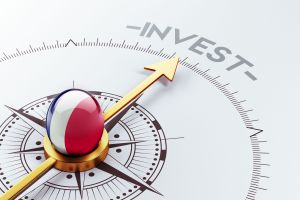專欄文章: 點解世界應該跟隨中國,投資非洲嘅未來
亨德里克·杜托伊特, co-CEO of Investec Group argues African economies have been resilient and the continent’s long-term growth story – particularly green growth – remains compelling to invest in Africa.
By Hendrik du Toit is co-CEO of Investec Group
I remember a time, 多 20 years ago now, 当幾乎冇專業管理嘅資本喺非洲跨境流動時. When aid and corruption drove the investment narrative. When Africa was called the “無望的大陸". When sustainability wasn’t even part of an investor’s vocabulary. We’ve come a long way.
The millennium heralded rapid growth across the African continent. At around 3%, 非洲基礎設施的違約率係世上最低的. Africa has the fastest growing population and is seeing a wave of innovation and entrepreneurship sweeping across the continent. The latter is strongly enabled by mobile phone technology which has directly facilitated a financing revolution. 離網太陽能電池板安裝激增, 透過手機每月付款購買, through companies like Mobisol and M-Kopa.
答案係肯定嘅, 全球和國內活動, 包括 2014 油價衝擊對主要經濟體的打擊尤為嚴重; 我哋睇到最近喺安哥拉的表現下降, 尼日利亞, and my home country of South Africa. But overall, African economies have been resilient and the continent’s long-term growth story – particularly green growth – remains compelling.
成個非洲大陸喺可再生能源方面嘅投資已達到数十亿美金. 舊年年底, 尼日利亞發行了106.9亿奈拉 (2900万美金) 綠色債券 to fund local solar and forestry projects. This is Africa’s first sovereign green bond – one of only a handful in the world (與中國並肩作戰, 法國, 波蘭, 斐濟同印度尼西亞). Kenya will soon follow.
的 世界銀行 also estimates that aggregate growth in Sub-Saharan Africa for 2018 就在周圍 3.2%, 從 2.4% 舊年. The continent is expected to host six of the 10-fastest growing economies of the world in 2018, 而傳統資產則受管理 (包括養老金和共同基金) are forecast to grow to around US$1.1 trillion by 2020, up from US$634billion in 2014.
總之, 非洲好 "開放商業", particularly for investors who are chasing yield and diversification. China’s got the message, committing to US$60 billion in new investment in major capital projects across Africa. Indeed, 中國成為非洲最大的出口目的地, 成為非洲復興不可分割嘅一分子, 其最大的進口來源同最近最大的來源資本, 股權和債務.
呢啲都係積極信號, but a lot more capital is still needed, 特別是來自大型機構投資者. Estimates put the 非洲基礎設施赤字約900亿美元 every year for the next decade. Across the continent, 620 百萬人仍然冇電; 319 百萬人生活在無法獲得可靠飲用水; 同得 34% 有道路通道.
有幾件事可以幫助. 首先, "撈" 公共和私人資本可以改善資產的風險回報狀況, so vehicles which use development money to mitigate investor risks can attract much needed commercial investment. Some of these vehicles – like 貨幣兌換, which offers FX hedging in emerging markets – have successfully mobilised billions of dollars of private money for African projects.
Another example is the 新興非洲基礎設施基金 (EAIF) with projects ranging from water supply in Rwanda to solar power in Uganda. The EAIF is part of the Private Infrastructure Development Group (同來自英國在內的各國政府的公平, 瑞典, 德國同荷蘭) and recently announced that it had 吸引咗全球保險公司安联 (allianz) 的第一家商業貸款機構, as part of a $385 million fund-raising round. This investment signals a shift in appetite for African risk from institutional investors. These vehicles need to be scaled and replicated.
其次, to attract investment for high-impact assets like climate-resilient, sustainable infrastructure, development banks need to be more effective at crowding 係 private capital using instruments like political risk insurance and guarantees, not crowding them 外. 充其量, 這 多邊開發銀行 (多邊開發銀行) 動員少於 $1 私人資本的每一個公共美金喺佢哋個投資組合. They should target much higher mobilisation ratios and sharply increase their share of private sector activities (目前只佔約 30% mdb 活動).
第三, frontier countries must compete for investor dollars by making it easier for the private sector to do business. This requires strong, 政治領導, depth in local capital markets, the right legal framework and transparent policies. In particular, local policies should support regional simplicity to facilitate cross-border operations that can generate scale. 例如, a very important, but much-overlooked regulatory amendment recently saw the amount that 南非退休基金可以投資於非洲其他地區 5% 自 10%. It’s only when public markets are deep enough for strong exits that we’ll see bigger and bigger deals happening.
最緊要係, if we really want to see sustainable growth and the associated economic and financial returns, 投資界需要帶頭. We need to take a leaf out of China’s book, 把非洲基礎設施作為投資機會, 利用風險緩解工具,解決新興市場和發達市場之間喺風險認知方面嘅巨大差距. 我哋仲可以利用我哋嘅投資能力為股東創造價值,同時優先考慮徜徉綠色桎梏, 可持續發展 (例如. through initiatives like 氣候行動 100+).
This is all part of how we move away from an “aid-based” narrative to one of business and investment. It is also how we can provide the platform for economic inclusion of the world’s most youthful and fastest growing labour force. I dream of a future shaped by bold and wise investment decisions.
源: CNBC非洲

